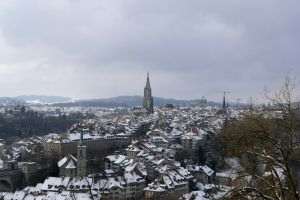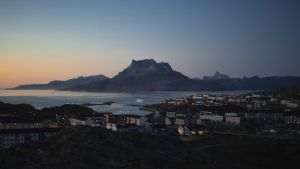The splitting of Sudan - into Northern and Southern Sudan - which was recently decided in a referendum, could cause Romania to lose 170 million dollars.
After Iraq, Sudan is Romania"s second largest historical debtor, on which it has claims from foreign trades and other operations which took place before December 31st, 1989.
Data from the Ministry of Public Finance (MFP), which were remitted to our editors upon request, show that, on December 31st, 2010, Sudan owed Romania 169,858,286.14 dollars and 881,325 pound sterling.
Sudan"s debt accounts for about 14% of the total inventory of Romania"s foreign trade receivable (in dollars) that Romania needs to collect from its trade relations it had with Sudan under the communist regime, which amount to approximately 1.25 billion dollars. Romania also has to recover an additional 1.23 billion transferable rubles from Cuba.
The division of Sudan into two distinct countries poses a new problem: which one of the two newly recognized states will acknowledge the country"s foreign debt that is owed to Romania and which one will be open to negotiation with us?
The situation will get even more difficult, considering that so far, Romanian authorities had enough trouble in reaching a consensus with Sudan before its secession.
The officials of the Ministry of Finance stated for our newspaper that recovering Sudan"s debt was made harder by the major economic, financial and currency troubles that the country is going through, as well as by the fact that Sudan is included in the categories of "countries affected by conflicts" and of "post conflict countries".
When asked by "BURSA" on what the Romanian authorities should do in this situation, PDL senator Iulian Urban, who is an expert in debt collection, had the following to say: "The authorities will need to begin negotiations with both countries to first and foremost get information on the way the two newly created countries will split the assets and liabilities of Sudan. After that, the Romanian authorities will need to take new steps to recover the money. If there are any issues with collecting the debt, than Romania will be entitled to request that the UN only recognize the new states if they provide guarantees that they will pay their debts".
Senator Urban considers that it is unlikely that any of the two countries will refuse to acknowledge Romania"s claims against them, since this is a matter of international principles, or that they would just try to flip it to one another until it gets forgotten. In his opinion, the recovery of the debt will depend on the way the Sudanese authorities of the two newly formed countries will be open to solve the issue of Sudan"s historic debt. Southern Sudan will be inaugurated on July 9th 2011.
• 22 years of civil war
Sudan, with a population of 44 million people, is the largest African country and the tenth largest country in the world. The division of Sudan was decided in January, following a referendum held in the south, in which 99% of the population voted in favor of the separation from the north. The secession of the South comes after a civil war that lasted 22 years, which killed at least 2 million people and caused 4 million people to be deported. One of the main reasons behind the war is religion, as the Southern side is predominantly religious, whereas the northern side is predominantly Muslim. The referendum in the south was accepted by the Central Sudanese authorities. Southern Sudan, with a population of 14 million inhabitants, thus becomes the 54th African state and the 193rd country of the world. Southern Sudan is currently one of the most underdeveloped regions in Africa, but after it announced its independence, several investors announced that they would be interested in investing several billion Euros.
• Business, resources and the origin of the claim
Sudan owns many natural resources, including oil deposits, which have been exploited since 1999. Sudan"s main export is cotton.
The African country also supplies 80% of the world"s gum Arabic consumption, which is used as an adhesive. The secession of Sudan poses a new problem: North and South are economically dependent on each other, because most of the oil fields are located to the south, whereas the petrochemical industry and the port, which is used to export the crude, are located in the northern side.
For Romania, the fact that Sudan is rich in resources, especially oil, could constitute an alternative to receiving cash in exchange for the claims. Besides, many of Romania"s claims on Sudan come from the help that the Romanian communist regime provided for the building of the oil port located on the coast of the Red Sea.
















































